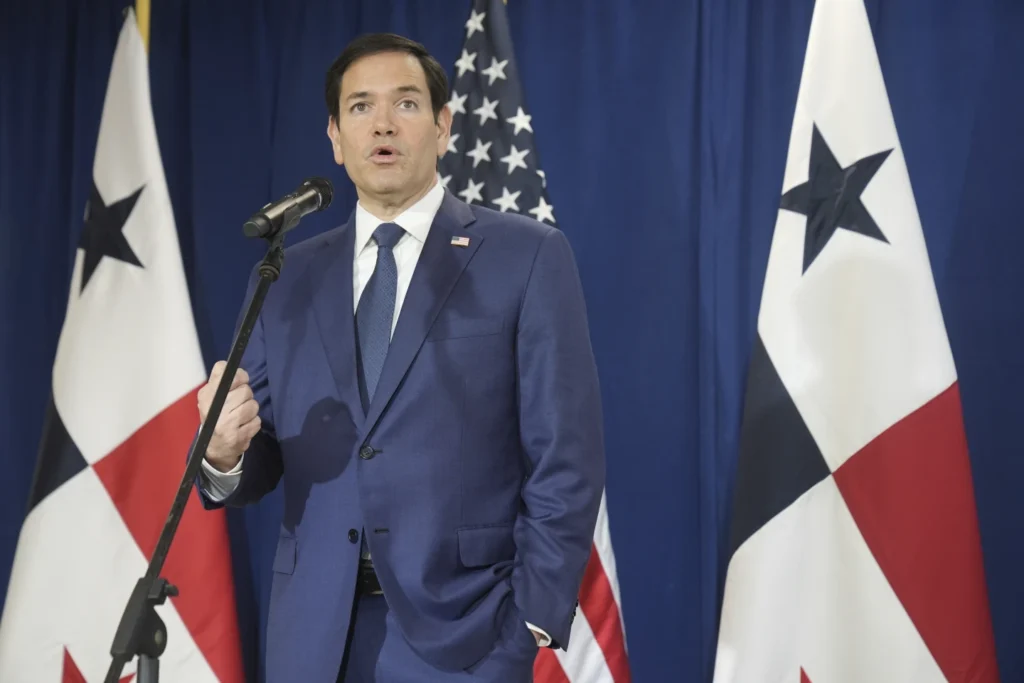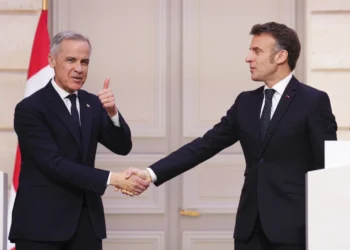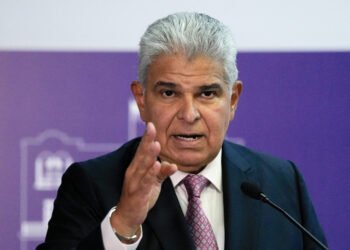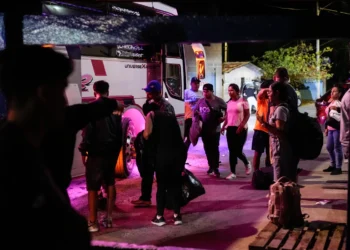US deportation is on full throttle as Secretary of State Marco Rubio announced that El Salvador has agreed to accept deportees from the United States, including violent criminals currently imprisoned in the country.
This unprecedented agreement, which President Nayib Bukele confirmed, marks a major shift in US immigration policy. “President Bukele has agreed to the most unprecedented, extraordinary migratory agreement anywhere in the world,” Rubio said after a lengthy meeting with Bukele at his lakeside residence outside San Salvador.
The deal allows the US to deport foreign nationals detained in the country, and, in a controversial move, also permits the transfer of violent criminals who are US citizens or legal residents. “We can send them, and he will put them in his jails,” Rubio stated.
In a social media post, Bukele affirmed that El Salvador has “offered the United States of America the opportunity to outsource part of its prison system.” He emphasized that only “convicted criminals” would be accepted, and the arrangement would involve a fee that is “relatively low for the US but significant for us, making our entire prison system sustainable.”
Elon Musk, who is collaborating with former President Donald Trump on government restructuring efforts, endorsed the proposal, calling it a “great idea.”
While Rubio praised the agreement, a US official later clarified that the Trump administration currently has no plans to deport American citizens, acknowledging that such a move would face serious legal challenges.
The State Department describes El Salvador’s prisons as “harsh and dangerous,” noting that many facilities lack adequate sanitation, potable water, ventilation, and temperature control.
Human rights organizations have expressed alarm, warning that the country lacks consistent policies for handling asylum seekers and refugees. Critics argue that the agreement could result in non-violent offenders being subjected to inhumane conditions.
Manuel Flores, secretary general of the leftist Farabundo Martí National Liberation Front (FMLN), condemned the “safe third country” arrangement, stating that it sends a message that the region is merely “Washington’s backyard to dump the garbage.”
US Deportation and Immigration Crackdown
Rubio’s visit to El Salvador was part of a broader diplomatic tour aimed at reinforcing the Trump administration’s crackdown on illegal immigration. Before arriving in San Salvador, he watched a US-funded deportation flight carrying 43 migrants from Panama to Colombia.
The US has provided Panama with $2.7 million in funding for deportation flights as part of its strategy to curb migration.
Trump’s administration has prioritized preventing migrants from reaching the US by strengthening immigration enforcement in Central America. The agreement with El Salvador builds on this approach, resembling “safe third country” agreements previously proposed for Venezuelan gang members convicted in the US.
Rubio also signed a memorandum of understanding with El Salvador’s government to advance cooperation in civil nuclear energy. The agreement could pave the way for a broader partnership in nuclear power and medical research.
The deportation flight Rubio observed in Panama was part of a wider push by Trump to penalize nations that refuse to accept deportees. Last week, Colombia briefly faced US-imposed penalties for initially rejecting two deportation flights.
Panama, in contrast, has been more cooperative, allowing flights to land and repatriating migrants before they reach the US border. “Mass migration is one of the great tragedies in the modern era,” Rubio said.
“It impacts countries throughout the world. Many migrants are victims along the way, and it’s not good for anyone.”
Marco Rubio

Rubio’s trip coincides with a sweeping freeze in US foreign aid programs. Thousands of employees from the US Agency for International Development (USAID) have been laid off following Trump’s decision to dismantle the agency. On Monday, Rubio stated that he was acting administrator of USAID but had delegated day-to-day operations.
Meanwhile, tensions are rising between the US and Panama over control of the Panama Canal. Rubio recently warned Panama’s government to eliminate Chinese influence over the canal or face US intervention. Trump took a more aggressive stance, stating: “China’s involved with the Panama Canal. “
He further threatened: “We either want it back, or we’re going to get something very strong, or we’re going to take it back.”
The El Salvador deportation deal, the Panama Canal dispute, and USAID’s restructuring highlight the dramatic shifts in US foreign policy under Trump’s leadership, as Washington pursues aggressive measures to control migration and global influence.
READ ALSO: Concerns Raised Over Absence of Best Group Category From TGMA







